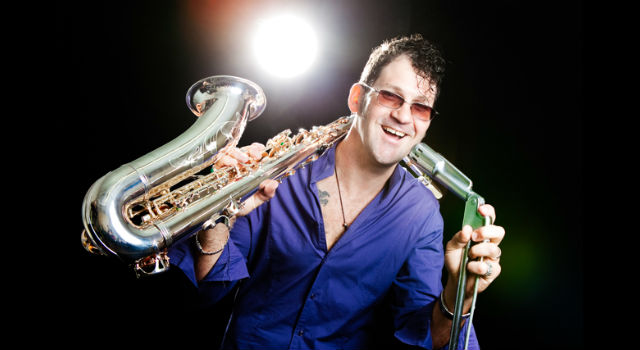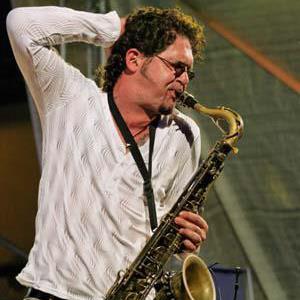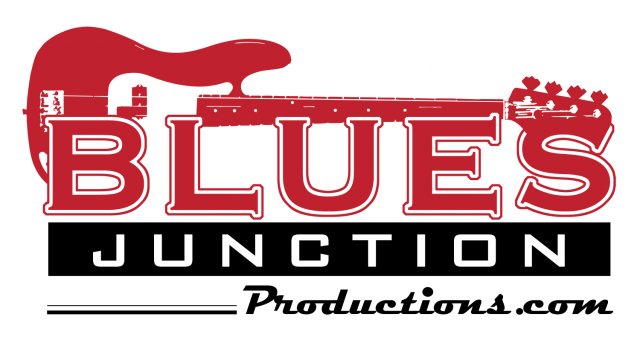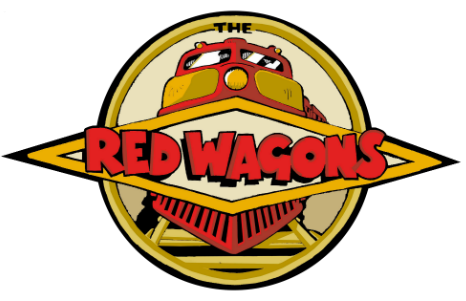
In una sua intervista Sax Gordon, popolare sassofonista nato a Detroit nel Michigan, cita The Red Wagons.
L’intervista è di David Mac della Blues Junction Production ed è disponibile anche sul loro sito cliccando qui.
David Mac (DM): When we visited last summer at the Tiki Bar in Costa Mesa, you told me you were originally from California. I was surprised because I have, for so many years, associated you with the East Coast blues scene.
Sax Gordon (SG): I am from Davis, which is in the northern part of the San Joaquin Valley near Sacramento.
DM: How did you get started in music?
SG: My mom had me taking piano lessons since I was in second grade. Everyone in my family had to take piano lessons. My mom had one of those cooking timers and she’d set that for an hour and sit there and knit. I practiced while she made sure I did my whole hour. So I was already playing piano and doing pretty well. I was playing in little groups by the time I was in fifth grade. They were offering music in school and for some reason I wanted to play saxophone.
DM: Why saxophone?
SG: I have no idea why. I have no recollection of why I wanted to plays saxophone. The only thing I can guess is I liked big parades. There used to be this big “Picnic Day” parade in Davis. Maybe I saw it there.
DM: Like most kids back in those days, you were probably consciously or more likely sub-consciously, picking up on stuff you heard on the radio.
SG: I was a teenager in the late 70’s. You still heard soul music, it was already oldies back then. I just considered it the sound of America. I don’t know quite how it happened, but I think I was just hearing the sound of American saxophone and I don’t mean jazz. You heard it on Little Richard songs. You heard it on all those great Stax Records, on Aretha Franklin’s Respect with King Curtis. There was a lot of sax out there.
Of course you had Bruce (Springsteen) who had Clarence “Freakin” Clemmons. I love Clarence. I saw him in Davis with Bruce on their first tour out west. Saxaphonistically speaking, it might seem that his playing isn’t what we have talked about before Dave, but it is all sax music that is an alternative to jazz. Here’s this big guy with a big tone, playing simple big lines, and I’ve since come to realize that he was really following in the footsteps of Gene Barge. He is, as you know, that sax guy that started in Virginia and went on to play at Chess Records.
DM: You can go back a few years before that and listen to some playing that is in a similar vein with that guy who played with Duane Eddy, Steve Douglas.
SG: Steve Douglas is probably the most identifiable from that period. He went on to become a huge session guy. I do have one Duane Eddy record where it lists on the back of the record the “Touring Rebels” and the “Studio Rebels”. So anyway, the Touring Rebel might have been Jim Horn and the Studio Rebel was Steve Douglas. Of course, that position is now held by Ron Dziubla. It’s cool to see him carrying that on.
DM: Like you Gordon, Ron is also a veteran of the TiKi Bar shows out here in California. J.R. and I have spent hours upon hours listening to and discussing that sound where blues, jazz and vintage rock & roll get all mixed up. This was the stuff you, Junior Watson and Fred Kaplan were laying down last summer out here at that gig. Do you remember when you first heard that kind of music?
SG: I do. My folks bought me this one record, which I have to this day.
DM: What’s the name of the album?
SG: It was simply called, The Tenor Sax Album. It was on the Savoy label. It had the words “tenor sax” in the title so I can see why my folks picked it up. They however had no idea what it was. It was just a random choice for them but I can’t tell you what a big influence it was in my playing. It was compiled by Bob Porter who has also been a big help in my life. He was a producer for Prestige and the man behind a lot of the compilations on that label as well. He has been a big supporter of saxophone whether it’s jazz or blues. He produced some of the great Gene Ammons records that I love.
DM: You started playing with the great Johnny Hearstman in his band in Northern California. Let’s talk about that.
SG: Johnny had been living in Sacramento, and he was playing in a place called, Sam’s Hof Brau, it was a well known little place. There was music on one side and cafeteria style eating on the other side. The walls were decorated like a German Oktoberfest kind of place with big murals and yet here is this really heavy cat and this very hip band. I remember I was just so impressed. I was underage but it was ok to go in because it was a food place, not just a bar. The funny part was that I’m standing there and I’m itching to play. The bandstand had like a railing around it, you know like a deck railing and there was some old timer leaning on the rail right next to the band, it seemed like he was part of the band. He saw me walk in with the horn case and he said “Get your horn out.” So I started getting my horn out and Johnny Heartsman sees me and he says “What are you doing? This isn’t jam night.”
DM: Ouch!
SG: I felt like a total idiot of course. The old timer had nothing to do with the band. He just saw me with a horn case and said, “Take that out,” so I did. I was kind of crushed but I got up my nerve to come back on a jam night. Johnny heard me play and ended up hiring me for a session which turned out to be a cassette only recording.
DM: Shine On… I had that cassette in my car for years. I didn’t know you were playing on that session.
SG: That came out in 1987 right before CDs. I have done recordings with local bands, little rock bands here and there, but Shine On was my first recording with a real blues cat.

DM: When did you move to Massachusetts?
SG: I was very young and was staring to get into a little trouble in Davis.
DM: You can get into trouble in Davis? That’s pretty impressive.
SG: (laughs) Davis is a college town. U.C. Davis has the reputation of being a party school. I was playing at frat parties with older musicians. They could buy beer and stuff like that. I was having fun but my folks had the wisdom to know that I should be doing something a little different, so I got sent to the East Coast and went to the Berklee College of Music. That’s where I learned what I do.
DM: What do you mean?
SG: The main thing I took away from that educational experience was that it made me realize that you better find out what it is that YOU do that makes you different because there is always going to be somebody that practices longer than you, that plays faster than you, that can play more chords than you, memorize better and so on. I truly found what I loved, different than what everyone else was doing.
Berklee’s stated goal is to prepare you for a job in the music industry. Performance is just a microscopic part of the music industry. I sometimes think it’s almost immoral to teach someone music and send them out into the world.
DM: Why?
SG: I mean how many students can you pump out every year and hope they’re going to survive making music? I don’t think it’s really a responsible thing to give a kid a bunch of music lessons and then send him out into the world.
DM: Good point. Maybe they should require that you get a concurrent degree in auto mechanics or something.
SG: (laughs)
DM: What’s so funny? I’m serious.
SG: I know. I’m laughing because that’s exactly what I did when I didn’t want to go to Berklee. I just wanted to play music but my parents wanted me to do something else as well. So I went to Sacramento Community College to study auto mechanics (laughs). I rebuilt the family station wagon’s engine but after a year of that I was starting to get into a lot of trouble, like I said, so it was off to school.
DM: Tell me about Massachusetts.
SG: I immediately started hanging out in the clubs and meeting the guys around Boston. At the time they were Luther “Guitar” Junior Johnson, Matt “Guitar” Murphy and an old Chicago blues guy named George Mayweather, who played on some of JB Hutto’s old records. Eventually Toni Lynn Washington started to play around town. By the way, I am going to Dubai with her next month.
DM: I first became aware of your music when you were associated with Luther “Guitar” Junior Johnson.
SG: Yeah, that was like my big break. Actually, when I got with Luther, I was already working with Little Joe Cook. He is not a household name, but he had the house gig at the Cantab Lounge, which I still play sometimes. Little Joe Cook had a hit in the 50s with a little falsetto, sort of novelty song called Peanuts. What people don’t realize was he was this really short guy with this high falsetto but he could also sing really low, so he had a show full of all these vocal tricks. He’d do the Apollo back in the day. He was from Philadelphia and when I started working with Solomon Burke, I remember mentioning Joe Cook to Solomon and he said “Oh, Joe introduced me to me first wife.” So whenever Solomon Burke would come to town, he’d send a limousine for Joe Cook and have him come down and see the show. Solomon gave him first class treatment all the way.
DM: You are still in your mid forties, but you have already amassed an impressive resume as a side man.
SG: I got really lucky. It seems like the blues scene was in pretty good shape back in the late 80’s early 90s. Ron Levy, the great keyboard player, was doing a lot of production work with Rounder Records in Boston. Then they started their subsidiary label, Bullseye Records, and I became sort of the house sax guy.
DM: How long were you with Luther?
SG: It was something like five years ’87 to ’92. Then I was with Matt Murphy for awhile. I was actually with Roomful of Blues for a minute when Greg Piccolo left. Then I hooked up with Duke (Robillard). Of course, there were little gigs along the way. I’d pick up a date with Gatemouth or James Cotton or something. You know, little one offs.
DM: The blues was really going strong back then. I was living in Houston in those days and touring bands came through town all the time.
SG: I played at a place down there called Pat and Pete’s Bon Ton Room with Luther or Duke or both, I can’t remember, but we packed the place. I still have a poster from there.
DM: Pat and Pete were neighbors and friends of mine. I loved that place. It was back in those heady times for the blues that the very first House of Blues opened in Boston.
SG: That’s right. It was a little tiny HOB. It was right in the center of Harvard Square which is close to where I live. They launched it as a small place to see if they could kind of get the concept going and it DID get going. Over time they started bringing in different acts, then they opened up bigger venues and in order to fill those venues it was more about having Sheryl Crow or the Smashing Pumpkins. You know what I mean? It got tough. I remember going to the House of Blues in LA with Jimmy Witherspoon. They wouldn’t even let us park to drop off our equipment. We said “We’re the band.” They said “No, no, you can’t stop here.” They wouldn’t even let us unload because they were so busy waiting for the next celebrity to show up. We’re actually the band and we’re not even allowed to stop to unload our equipment because they’re worried about accommodating the celebrities.
Before everything got all screwed up at the HOB, I was in the house band. We’d back up lot of people like Junior Wells. One night I did a show with Matt Murphy and Hubert Sumlin together.
DM: Let’s get back to Jimmy Witherspoon for a moment. You were in Duke’s band that opened for and backed up Spoon back in the late ‘90s. Let’s talk about that for a moment.
SG: Jimmy was really on his last legs. It was tough because he didn’t have a whole lot of voice left. One thing he did have was that great phrasing. He would poke out a lyric, it was so slow, you couldn’t believe it. He’d wait so long to put that next lyric in there you’d think “There’s no way he’s going to make it.” and just before you’d almost give up hope, here comes that next line and it would fall in and would lay just perfect. It was a great a lesson in timing just to be up there with him.
DM: You play on that great Duke Robillard album, Stretching Out Live that came from one of those shows.
SG: That was recorded in Vancouver. I had just joined the band. Over the next year we really developed a cohesive, nice tight way of playing together. It wasn’t like there was a horn section, I was playing by myself and yet I found a way to kind of fit in with the bass and the drums. You know it was just a four piece band but we really found a way to make something happen.
DM: Duke’s intro to T-Bone’s Glamour Girl on that release really is spectacular.
SG: Everyone does T-Bone of course, or tries, but I don’t think anyone’s in Duke’s league as far as nailing that T-Bone thing. It was great playing with Duke. It was really great for me because, we’ve never really talked about it, but we both had the same interest in trying to preserve or trying to learn from these old records. For me that could be Maxwell Davis or Jack McVee that played with T-Bone, I loved the solos, I loved that style, but the thing is as a saxophonist, you can’t apply that style unless you have the right context.
DM: You can’t even attempt that stuff in most places.
SG: You go do that at a blues jam and people just look at you like, “What is he doing?” For instance, Fred Kaplan’s record was the right situation. That’s the situation where the band is hip to everything. The recording situation on that last Fred Kaplan record was the most antique vintage thing ever. So that really brought out that whole concept.
DM: I am glad you brought that up, I think Fred’s record that came out last year is a masterpiece. I really do and am careful not to throw hyperboles around too often.
SG: I agree. You know he insisted that none of that be rehearsed or decided on beforehand. Everything was on the spot. There was no preparation at all. We just went in and made music. We might do a take, talk about it and we might do another one, but basically it all came out of us right there.
DM: I know you also play on Junior Watson’s album, that was released at the same time last year Jumpin’ with Junior but I want to talk about the boys from Brazil.
SG: The Igor Prado Band’s album that came out last summer called, Blues and Soul Sessions was recorded in a big old studio in a religious complex. It was recorded in a giant room. It has that whole big room sound that he was looking for. In a different way than what Fred did, but it was the same idea to try and go back and capture an earlier recording style. He was able to accomplish that.
DM: I can’t get over how young and how damn good those guys are.
SG: When I used to go down there, I’d stay in Igor’s parent’s house in a spare room. They were super young you know. There is this guy known as Chico Blues. He had a lot to do with Igor and these kids learning this stuff. I went down there with John Hammond and Duke in ’95. We played at these big blues festivals sponsored by Nescafé, and they were televised. Igor, his brother Yuri and their bassist Rodrigo were kids and watched us on TV.
DM: I was talking to Igor this past summer and he told me how much those Nescafe’ Blues Festivals impacted his playing and inspired him to do what he does.
SG: They’re always working on new stuff. They are so hard working. Last time we were down there, we cut some tracks for their sax player whose one of my favorites Denilson Martins. This kid can really blow. It seems limitless the stuff he can do. You know I’m pretty strict about the tradition. I hate to see a jazz guy come on and do a bunch of blues stuff. It’s not like you have to come on and sound like Maxwell Davis or Joe Houston, but I like to see people stay within the bounds of style and work within the parameters of that style. This kid, he’s very into this style, but his musicianship is open. We were working on some recordings for him the last time I was down there.
DM: Let the globe hoping continue. I just got my hands on yet another great recording by a group out of Rome, Italy called, The Red Wagons. You are on that record as well.
SG: I just saw those guys in Rome the other day. They all came out to a gig I was doing. It was nice to see them. That album finally came out. Junior and I play on four of the tracks. Marco and the rest of those guys are great.
DM: Now back to America. When we talked a couple of weeks ago, you told me you were going to play at the Inauguration. Tell me about that.
SG: It was fun. We played at the Vice Presidential Mansion. It was one of those gigs you take to survive in the music business. Whether its Frank Sinatra or Lady Gaga we play it. I don’t mind doing this kind of stuff as long as the musicians are good and I’ve got something else going in my life. If this was all I had to do, I’d get depressed. When you look at your calendar and have a tour of Holland coming up or you’re coming out to the west coast to play with Junior Watson and Fred Kaplan down in your neck of the woods Dave, it makes it OK. If playing that pop stuff was all I did, then it would get kind of dark. It’s just one thing and of course you get a big fat paycheck, so I don’t mind it at all.
DM: While on the topic of America you told me an interesting story about the recording of Jimmy McGriff’s record, McGriff Avenue.
SG: He is one of my heroes of course. Like you, I love that jazzy, bluesy B3 sound. I was asked to do a recording date at the legendary Rudy Van Gelder studios in Englwood Cliffs, New Jersey. That’s where all those great jazz recordings we talked about took place in the 50’s and 60’s. Jimmy was part of that scene of course, along with Bob Porter who we also talked about earlier. The recording session was scheduled for September 11, 2001.
At the time I was kind of bummed out because I looked at my calendar and I was scheduled to be in Italy. So I called and told them, I couldn’t make it. Obviously the session had to be rescheduled as a result of the terrorist attack that took place right across the Hudson River. I mean the bridges, and tunnels were closed and everything. It was horrible.
DM: So you were stranded in Italy.
SG: Exactly…when I did fly back there was only three other people on the plane. I mean all the hotels were empty. It was very surreal. Of course they ended up re-scheduling the recording session and I was able to participate. The circumstances were really horrible, but it meant a lot to me personally to record with one of my heroes. It turned out to be Jimmy’s last album. A bunch of great cats were on that record including Ron Dziubla who we also talked about earlier.
DM: With all you have going on, you also have a brand new studio album under your own name called Showtime. It is a departure from your previous recordings.
SG: That’s right. When people think of saxophone led albums in this genre, swing, rhythm and blues and jump blues is what comes to mind. I wanted to do something a little different.
DM: To me it sounds like a live show recorded in a studio. Is that a fair assessment?
SG: Yes. I just wanted to do something fun. There has been a down turn in the live music scene everywhere. I think that the musicians have to shoulder some of the responsibility for that. I mean the economy is rough so if someone comes out to a show they deserve to get their money’s worth. I don’t think people want to come out and watch some guy tuning up his guitar for five minutes between songs. This music is fun and that’s what Showtime is all about.
DM: It is a lot of fun. Thanks Gordon.
SG: You got it Dave. Let’s stay in touch.

